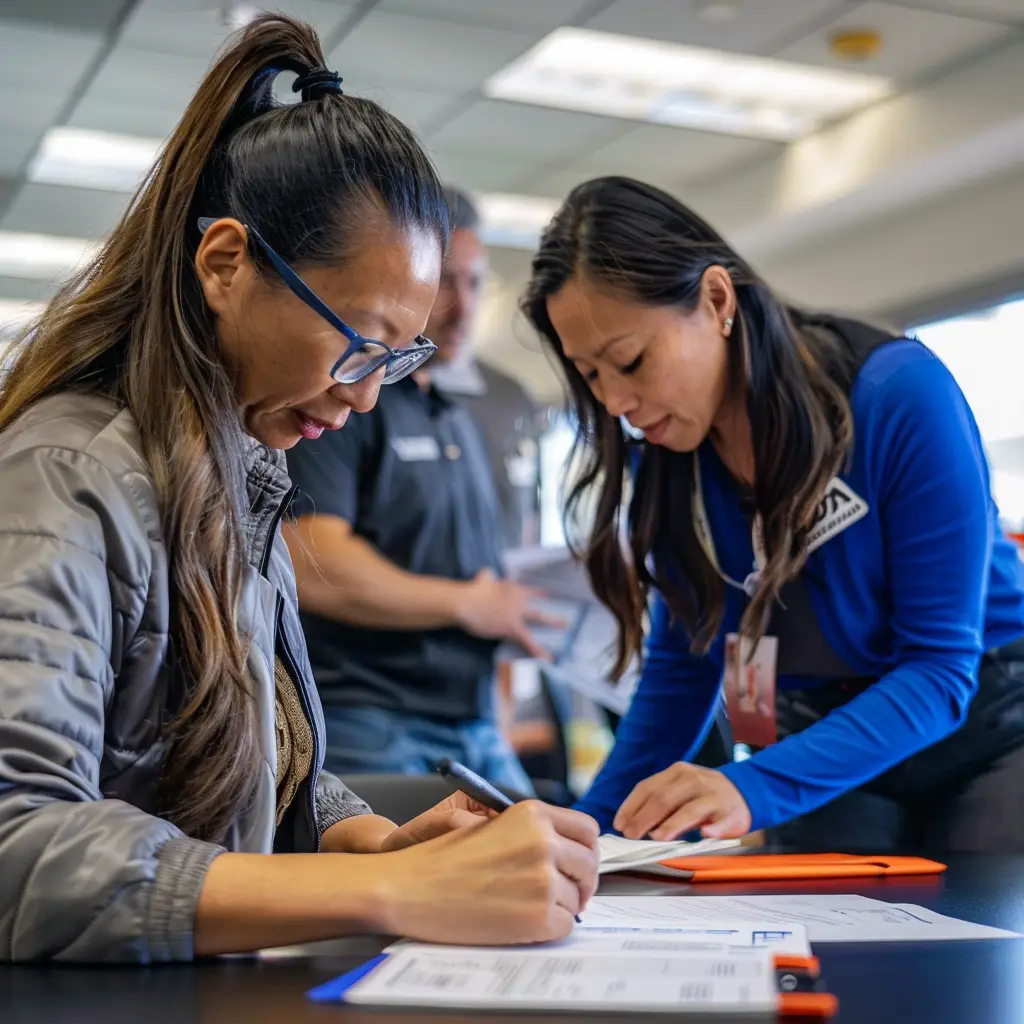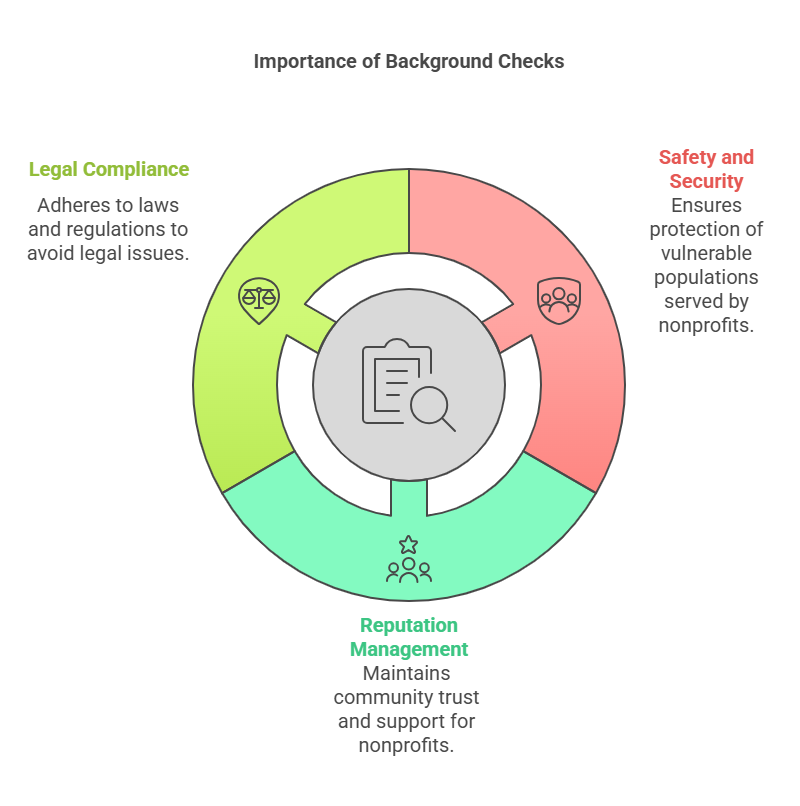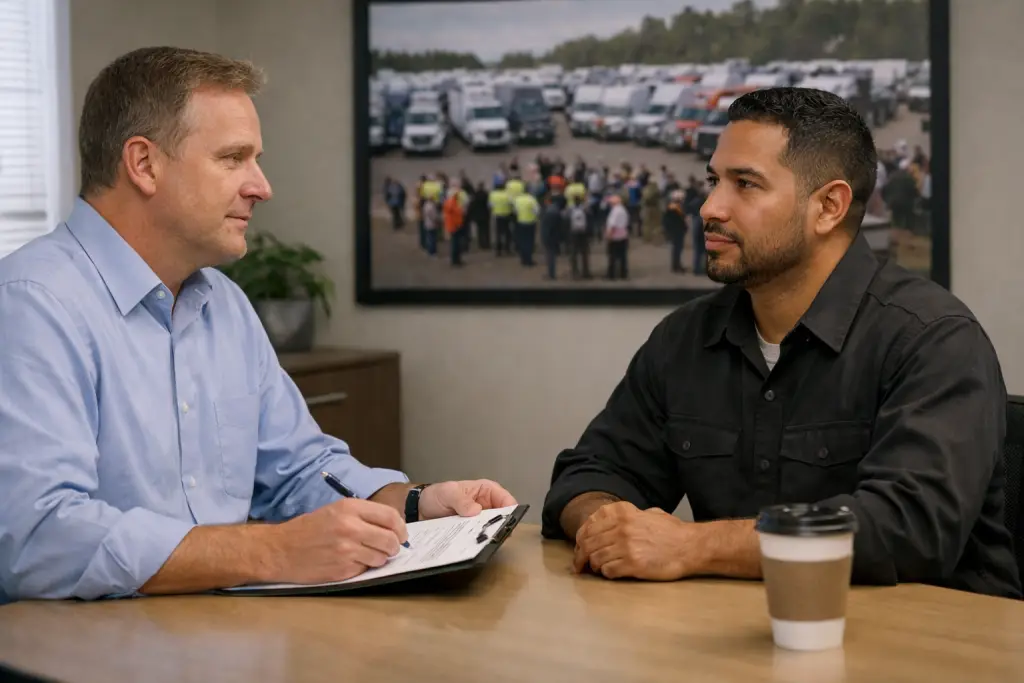For nonprofit organizations, volunteers are often the backbone of operations. They bring passion, dedication, and a commitment to making the world a better place. However, ensuring the safety and integrity of these volunteer teams requires nonprofits to engage in thorough background checks. These checks protect the organization's reputation, keep vulnerable populations safe, and ensure that volunteers are fit for their roles. In this guide, we’ll explore the best practices for conducting background checks for nonprofits, discuss their importance, and address common questions and concerns.
Key Takeaways
- Effective background checks are crucial for nonprofits to ensure the safety and trustworthiness of their volunteer workforce.
- Comprehensive screening protects vulnerable populations and safeguards the nonprofit's reputation from potential incidents involving unchecked volunteers.
- Nonprofits must comply with federal and state laws regarding background checks while balancing privacy concerns and ethical responsibilities.
- Establishing clear policies and using reliable screening services helps maintain consistency and fairness in the volunteer screening process.
- Continuous monitoring of volunteer backgrounds ensures ongoing safety and maintains the integrity of the nonprofit’s mission.
Introduction
Volunteers are the heart of nonprofit organizations, driving missions forward with their energy and dedication. Yet, even with the best of intentions, not every volunteer may be suitable for every role. Ensuring volunteers meet the necessary standards is critical for nonprofits that aim to protect their reputation and those they serve. This article exists to guide nonprofit organizations through the nuanced process of conducting effective volunteer background checks. Our goal is to provide practical, straightforward advice that empowers nonprofits to implement robust screening processes, ensuring every volunteer is fit for their role and the organization remains a safe and trusted entity in the community.
EXPERT INSIGHT: Volunteers are heroes -- I know you would agree. As an HR professional, I've seen these people playing a vital role in the success of every nonprofit organization. However, as the famous line goes: "With great trust comes great responsibility." Background checks for nonprofit organizations are equally important to the checks conducted for screening, employment, and other related purposes. Just as how we do it in the corporate world, it must be done carefully, consistently, and bias-free. - Charm Paz, CHRP

Why Background Checks for Nonprofits Are Essential
Background checks aren't just a formal procedure—they're a cornerstone of nonprofit operations that determine the safety and trustworthiness of your volunteer workforce. Here's why they're critical:
- Safety and Security: Background checks are vital in safeguarding vulnerable populations that nonprofits often serve. From children to the elderly, maintaining a secure environment is paramount. Screening volunteers help prevent potential harm, ensuring that those interacting with beneficiaries are trustworthy and competent for their roles.
- Reputation Management: Nonprofits thrive on community trust and support. One misstep involving an unchecked volunteer can have far-reaching consequences, including loss of funding and community support. Thorough screening minimizes the risk of incidents that could damage an organization's reputation and, by extension, its ability to fulfill its mission.
- Legal Compliance: Various laws and regulations underscore the necessity of background checks. For instance, some states mandate screenings for individuals working with minors or accessing sensitive information. Familiarity with these regulations ensures compliance and shields the organization from legal repercussions. Resources like the U.S. Department of Labor provide guidance on hiring practices to keep organizations in good legal standing.
Incorporating these steps into your volunteer management plan not only fortifies your team's integrity but also aligns your nonprofit with best practices in the sector.

Components of a Comprehensive Background Check
When putting together a thorough background check for volunteers, nonprofits should focus on a few key components to ensure they cover all necessary bases.
Identity Verification and SSN Trace: Start by making sure your volunteer is who they say they are. This step often involves an SSN trace; it's like a basic ID check. Verifying their identity helps weed out fraudulent or mistaken identities, providing a foundation for all other checks.
Criminal History: Here’s where you dig a bit deeper. Look into county, state, and national databases to see if potential volunteers have any criminal records. It's crucial for assessing any risks they might pose. Understanding terms like “disposition” is important—this tells you the outcome of any charges, helping you determine if an offense is relevant to their potential role.
Motor Vehicle Records for Drivers: If your volunteers will be driving, even if it's not requiring a commercial driver's license, check these records. You'll confirm that they have a clean driving history, which is necessary for safety and insurance purposes.
Drug Testing: Including drug tests in your background checks can sometimes be a point of contention. Decide if this is right for your organization. Methods like drug mouth swabs are non-invasive and quick, but weigh the pros and cons carefully—consider the legal implications and the message it sends about your organization’s priorities.
Integrating these components ensures a balanced, effective approach to screening volunteers, allowing your nonprofit to select individuals who are right for both the role and the values of your organization.
Best Practices for Conducting Volunteer Background Checks
Let’s get straight to it. Having a solid plan for volunteer background checks isn’t just good practice—it’s essential. Start by developing a clear policy. Nail down exactly what checks you’ll perform and why. Put it in writing so everyone’s on the same page. Policies not only give direction but also help avoid misunderstandings later.
Next, find reputable providers to perform these checks. Partner with accredited services—think The Professional Background Screening Association for a start. They bring credibility and thoroughness to the table, which you definitely want. It’s tempting to cut corners, but avoid freebies that sound too good to be true.
And here’s the thing about consistency: apply the same standards to everyone. Sounds simple, but it’s crucial. This keeps things fair and sidesteps any claims of discrimination. Consistency is the backbone of fairness.
Oh, and don’t forget about consent. Always get written permission from volunteers before you start snooping. Plus, be transparent about the process. Tell them what you’re looking for and how you’ll use the info. This builds trust and keeps everything above board.
By following these best practices, nonprofits can ensure their screening processes are as efficient as they are fair, paving the way for a safe and productive volunteer workforce.
Navigating Common Challenges
In the world of nonprofit volunteer background checks, challenges arise from balancing the need for comprehensive screening with privacy concerns. Being thorough doesn't mean overstepping boundaries. It's essential to gather adequate information without intruding on personal privacy. Key here is to stick to what is necessary for the volunteer role and ensure compliance with privacy laws. This balance is achieved through transparent communication about what checks involve and why they're essential.
Handling red flags can be another tricky area. Not every issue found during a background check should result in an automatic disqualification. It’s important to have a clear policy on how to address such findings. Consider the context of the information and give the volunteer a chance to explain. The goal is to assess whether the issue directly impacts their ability to perform their role safely and effectively.
Continuous monitoring is often overlooked but crucial. After the initial background check, circumstances can change. Implement a system where volunteer backgrounds are periodically reviewed, keeping the nonprofit safe and proactive. Use alerts or scheduled updates to stay current without being overly invasive. This ongoing diligence helps ensure that volunteers remain a safe and suitable fit for their roles, maintaining the integrity of the nonprofit’s mission over time.
Legal and Ethical Considerations
Nonprofits must navigate the complex web of laws surrounding volunteer background checks. At the federal level, the Fair Credit Reporting Act (FCRA) plays a significant role in how background checks are conducted. The FCRA requires organizations to obtain an applicant's written consent before a background check is performed. Beyond federal regulations, each state may have its own laws that further restrict or guide how checks are carried out, especially concerning sensitive groups such as those involving children or the elderly.
Ethical considerations are equally important. Nonprofits must handle sensitive information with care to maintain trust and integrity. This involves not only safeguarding the data but also ensuring the information is used in a manner that is both nondiscriminatory and respectful of the individual’s privacy rights. Ethical screening doesn’t just prevent legal issues—it builds a culture of respect and transparency within the organization. Volunteers should be informed not just of what will be checked, but why it’s important for the organization and its mission. By balancing legal compliance with ethical responsibility, nonprofits can establish a fair and reliable screening process that supports their broader goals of safety and equity.
Frequently Asked Questions (FAQ)
Here are some common questions about background checks in the nonprofit sector to help clarify the process:
Can background checks be done for oneself?
Yes, individuals can perform background checks on themselves. This can be particularly useful to know what potential organizations might see. Many online services allow you to request personal background checks, giving you a chance to correct any mistakes and prepare explanations for any red flags before applying to volunteer positions.
Will a DUI show up on a background check?
A DUI will typically show up on a criminal background check and could be a disqualifying factor depending on the organization’s policy and the role in question. For roles involving driving, a DUI can be particularly problematic. It's important for organizations to clearly outline their stance on such offenses in their background check policies.
What does it mean if a background check includes drug testing?
Including drug testing as part of a background check means that the organization wants to ensure volunteers are not under the influence of illegal substances while performing their duties. The methods can vary; common approaches include urine tests or drug mouth swabs. It's important for nonprofits to communicate this requirement clearly to avoid surprises and to handle the results with strict confidentiality.
Conclusion
Effective volunteer background checks are a cornerstone of maintaining a safe and reputable nonprofit organization. By investing time and resources in comprehensive screening, nonprofits shield their communities and bolster their mission. This process ensures that volunteers align with organizational values and responsibilities, minimizing risks to vulnerable populations and the nonprofit's reputation.
Commitment to best practices is not only prudent but essential. Nonprofit leaders should seamlessly incorporate these guidelines into their volunteer management programs. By doing so, they create an environment where safety and trust prevail, allowing their volunteers' passion to truly shine without compromise. With thorough and ethical background checks, nonprofits can continue to make meaningful, positive impacts in their communities while mitigating potential challenges before they arise.
Further Reading
For those who want to dive deeper into the intricacies of background checks, there's a wealth of resources to explore. Start with our Blog on Background Checks, where topics range from the latest trends in the field to detailed how-tos for nonprofits. If you're curious about the common concerns people have, check out the article on the Most Common Background Check Questions. These resources are crafted to provide additional clarity and guidance, ensuring your nonprofit remains informed and prepared in managing volunteer checks.
Additional Resources
- Background Check Best Practices & Challenges
- Background Checks for Nonprofits: Ensuring Safety and Compliance
- Non-Profit Background Checks: How to Vet Volunteers Safely
- Best Practices for Nonprofit Screening
- Non-Profit Background Checks: Best Practices for Organizations

GCheck Editorial Team
Meet the GCheck Editorial Team, your trusted source for insightful and up-to-date information in the world of employment background checks. Committed to delivering the latest trends, best practices, and industry insights, our team is dedicated to keeping you informed.
With a passion for ensuring accuracy, compliance, and efficiency in background screening, we are your go-to experts in the field. Stay tuned for our comprehensive articles, guides, and analysis, designed to empower businesses and individuals with the knowledge they need to make informed decisions.
At GCheck, we're here to guide you through the complexities of background checks, every step of the way.





